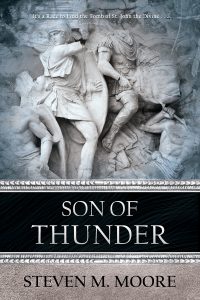Themes we need to see…
Both authors and publishers seem to be afraid of serious themes in these days of political correctness and fear of something controversial that internet trolls attack. The #MeToo and anti-cultural appropriation troops strike fear in everyone about saying anything that might set them off. Anti-vaxers even resort to calling new vaccine laws racist. Everyone has a cause, and many are fanatic about their causes. My two main causes are gun and climate control. 90% of Americans want reasonable gun control, and climate change threatens everyone’s children and grandchildren, so you would think that those causes are not only bipartisan, they’re universal concerns. Think again!
As a consequence, it seems hard to find a well written book with some red meat in it these days. Okay, vegans and vegetarians will probably come after me for using that metaphor. Change it to “…with some serious topics in it….” I’m not talking about political things necessarily. Something like my novella “Fascist Tango” would be attacked mercilessly if I made it into a novel and sold it, but any sane person knows both the extreme left and right can both become fascist—just consider Maduro’s Venezuela and Pinochet’s Chile. No, I’m speaking in general about themes that appear in the national dialogue, or even worldwide.
By avoiding serious themes, books become bland. Orwell’s 1984 or Koestler’s Darkness at Noon could never be published today…or, if they were published, they’d be relegated to the bottom of the pile of books Amazon promotes. If a book has good vs. evil, it’s all light and darkness with no gray, reminding me more of The Perils of Pauline than serious and complex storytelling. Romance sells; cozy mysteries sell, focus on “cozy” meaning not controversial. Sci-fi sells if it reduces to space opera; fantasy succeeds if it’s something like Star Wars or Game of Thrones—there be dragons over yonder, but they’re not all that bad…and they know smoking can affect their health.
It all reduces to supply and demand, of course. Econ 101. There are few readers remaining who want fiction with serious themes. Maybe it’s because they live a reality where they’re bombarded with serious themes every waking hour, or relive them in their nightmares. They don’t want to read about them in the books they buy. They want escape from all that—comfort food, not exciting taste challenges.
These are over-generalizations, of course, observations about the average in the distribution of reading behavior. There are still tails for that statistical distribution, often determined by niche books, but do the tails lead to bestsellers? I conjecture that happens so rarely that I use the NY Times Book Review to filter out books I do NOT want to read. And I’m proud to say I haven’t read one book nominated for the National Book Award—they all look like pablum, and I’m not Oliver asking for more porridge.
A book can be exceptional for many reasons. It can’t be exceptional by trying to please everyone, though. That leads to blandness. Such books might entertain, but they don’t stick in my mind as being exceptional. Fun to read? Maybe. Exceptional? No way. It’s as if authors and publishers are participating in the “small talk” Eliza Doolittle must master in My Fair Lady—inoffensive jibber-jabber that doesn’t qualify as intelligent speech.
Where will it all end? Perhaps we won’t need the soma from Brave New World. Perhaps Bradbury’s book burners in Fahrenheit 451 won’t be needed either. Blasé books will rule the day—they mostly do that already—and then books will disappear, killing something that makes us human…good storytelling. Everyone will be happy, happy, happy discussing nothing. I don’t see it ending well, but that’s just my opinion. What’s yours?
***
Comments are always welcome.

Son of Thunder. What’s unusual about this book? It’s the sequel to Rembrandt’s Angel. It features Esther Brookstone, now retired from Scotland Yard, who is now obsessed with finding St. John the Divine’s tomb using directions left by the Renaissance artist Sandro Botticelli. Esther’s search, the disciple’s missionary travels, and Botticelli’s trip to the Middle East make for three travel stories that all come together in one surprising climax.
Esther’s paramour, Interpol agent Bastiann van Coevorden, has problems with arms dealers, but he multitasks by trying to keep Esther focused and out of danger. The reader can also learn how their romance progresses, as well as travel back in time to discover a bit about Esther’s past with MI6 during the Cold War.
History, archaeology, romance, religion, and art make for a tasty stew in this moving, moralistic mystery/thriller novel published by Penmore Press. Available in print and ebook formats at Amazon and from the publisher, and in ebook format at Smashwords and the latter’s affiliated retailers (iBooks, B&N, Kobo, etc.) and lenders (Overdrive, etc.). Also available at your favorite bookstore (if they don’t have it, ask for it.)
Around the world and to the stars! In libris libertas!
